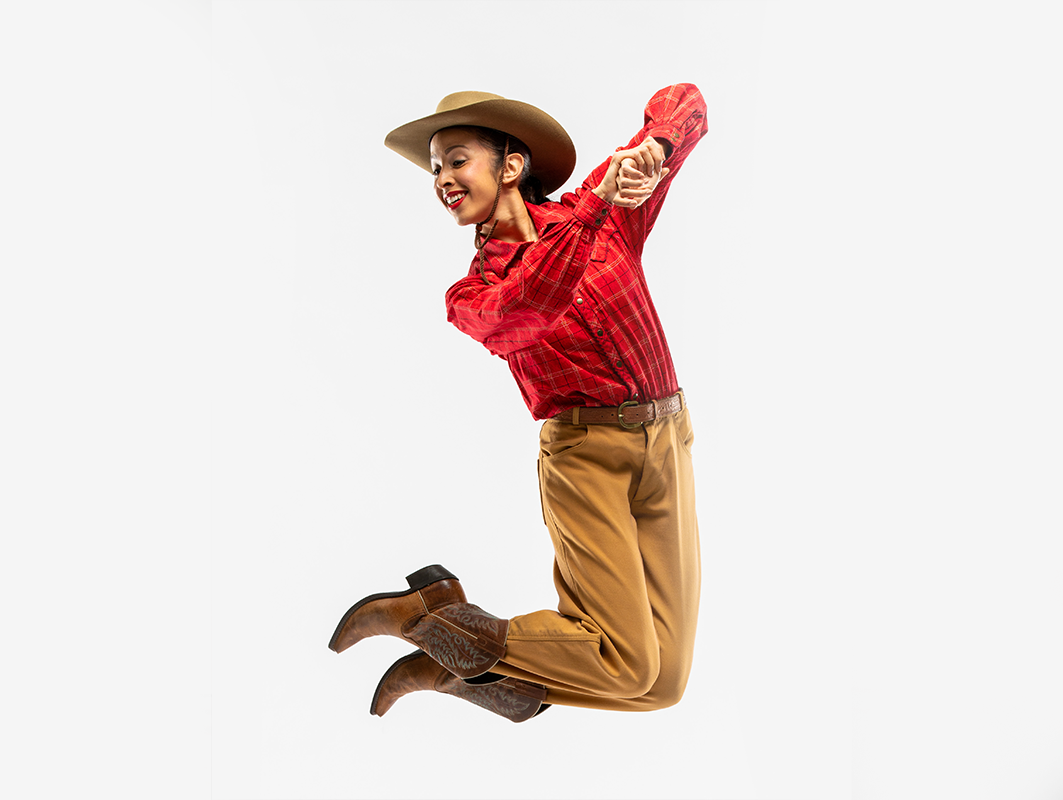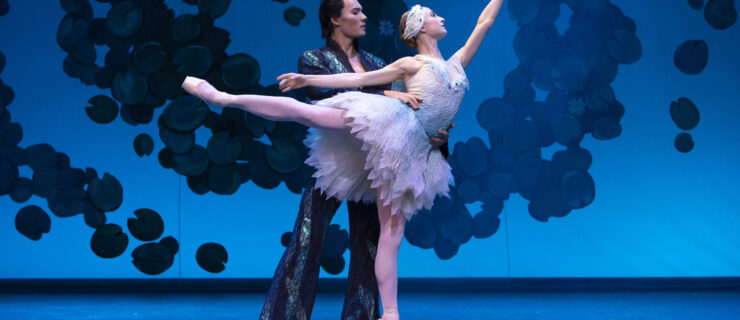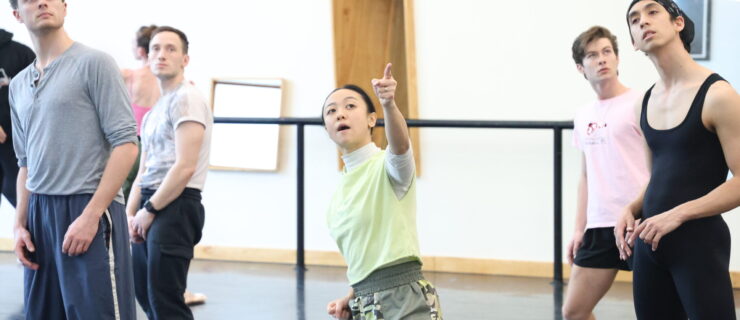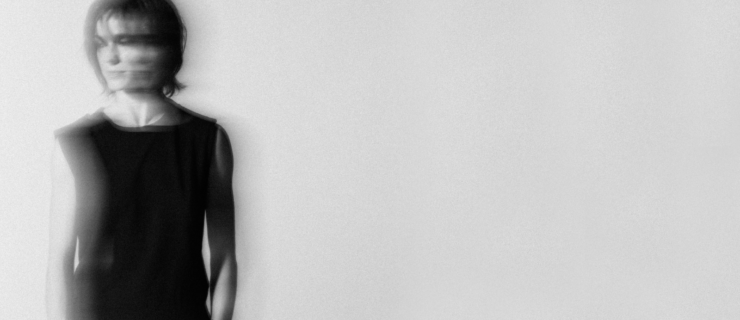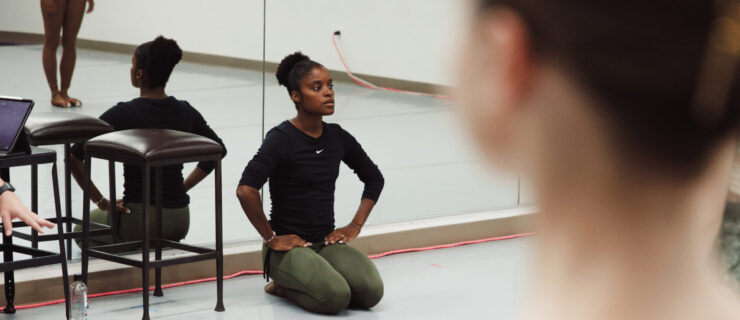Ballet West Saddles Up as “Rodeo” Turns 80
In 1942, Agnes de Mille premiered her cowboy-themed ballet, Rodeo, with Ballet Russe de Monte Carlo at New York City’s Metropolitan Opera House. Eighty years later, Ballet West celebrates the work’s anniversary this November, featuring the ballet in a triple bill alongside George Balanchine’s Concerto Barocco and Jiří Kylián’s Return to a Strange Land. Ballet West is the only U.S. company celebrating Rodeo’s anniversary this year, and it will be a company premiere.
With sets by Oliver Smith and Aaron Copland’s iconic original score, de Mille’s one-act Rodeo was a landmark in dance history as the first main-stage ballet production to feature American tap and folk dance in its choreography. And with Richard Rodgers and Oscar Hammerstein II in attendance at its premiere, the ballet also launched de Mille’s career on Broadway; she’d go on to choreograph the 1944 Pulitzer Prize–winning Oklahoma!, Carousel and Brigadoon, the former two in tandem with Rodgers and Hammerstein.
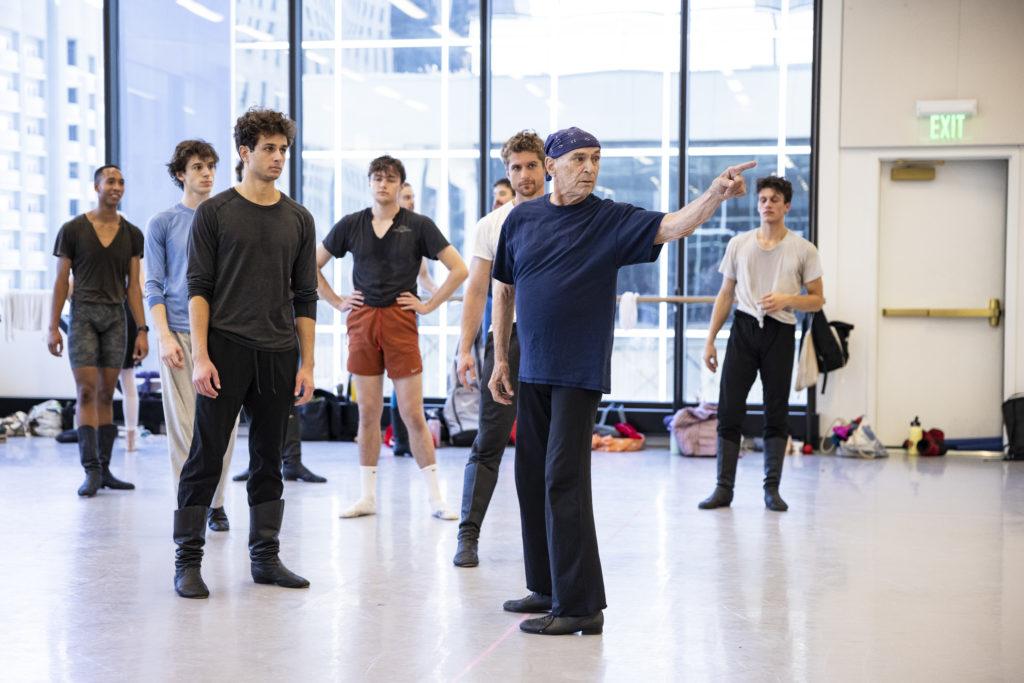
Ballet West artistic director Adam Sklute calls Rodeo an enduring and undeniably American work that “redefined how audiences look at ballet.” Originally programmed for the company’s 2020 season, the performance was postponed due to the onset of the COVID-19 pandemic.
“When looking to reprogram Rodeo, we realized we had a wonderful opportunity to celebrate its 80th anniversary with our company premiere,” says Sklute. “I’m thrilled it worked out that way.”
Paul Sutherland, the only répétiteur ever authorized to teach the ballet, and Diana Gonzalez-Duclert, de Mille’s former rehearsal assistant, staged the work on Ballet West this past August. The performance will feature sets in Smith’s original designs, rented from Philadelphia Ballet.
Rodeo tells the story of a tomboy cowgirl whose affections, at first trained on the ranch’s head wrangler, turn to her friend, a champion roper. She realizes that unlike the wrangler, who notices her only when she begrudgingly wears a dress, the roper’s feelings for her have persisted regardless of her garb.
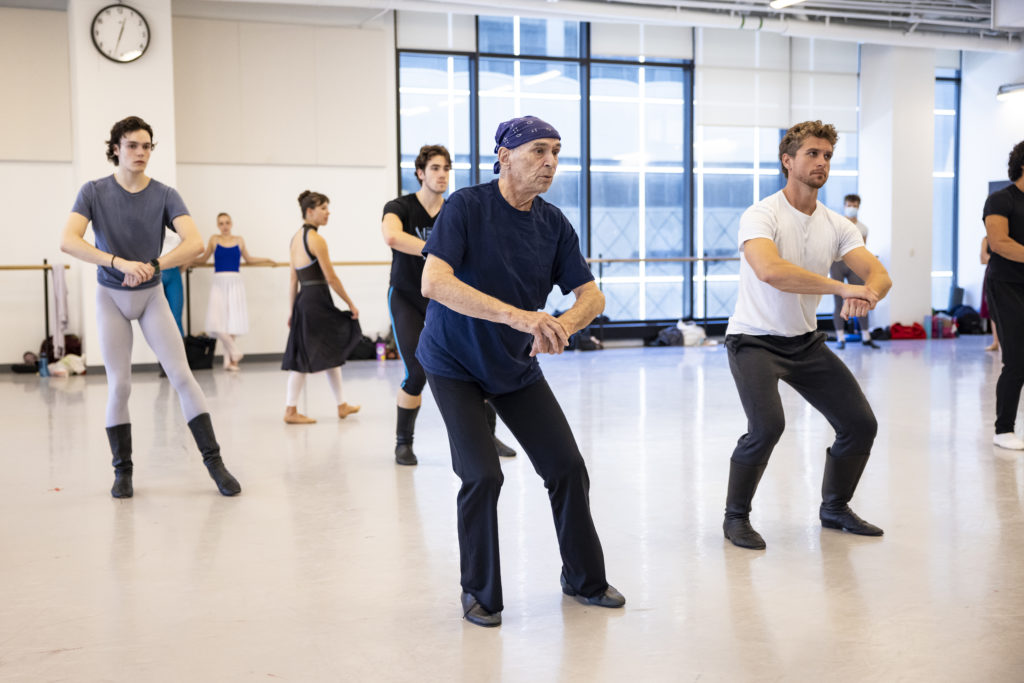
“It’s a very sweet and simple story,” says Sklute, “and, interestingly, it speaks to gender identity and inclusion in a way that we, as 21st-century audiences, can relate to. It’s fascinating that in 1942 de Mille was already saying that we should let this cowgirl wear what she wants and be who she is, and she’ll still find love and happiness.”
In addition to this contemporary takeaway, Sklute looks forward to audiences recognizing Copland’s famous composition. “People know this score,” he says. “I’m excited to see them say, ‘Wow! This is what the music was for,’ and gain a greater appreciation.”
As opening night approaches, Sklute is confident audiences will enjoy the performance: “[Rodeo] may not be your style, but you cannot leave it without a smile on your face.”
Rodeo runs November 4–12 at Salt Lake City’s Janet Quinney Lawson Capitol Theatre.
